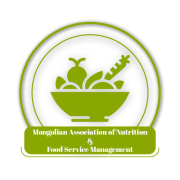

Author(s): Tefera Chane, Lemessa Oljira, Gudina Egata Atomesa and Eskezyiaw Agedew
Background: Severe acute malnutrition is a major challenge to achieve the millennium development goals. It is also the least preventable causes of child deaths. Limited information is found on the factors that influences improvement of treatment outcome in the admitted children. So the study tries to identify associated factors that compromise outcome. Objectives: Assessment of treatment outcome and associated factors among under-five children with severe acute malnutrition admitted to therapeutic feeding unit at Woldia general Hospital. Method: A Hospital record based retrospective cohort study supplemented with qualitative inquiry was conducted. The study period was from January 01 to 06, 2014. Records of 324 children with severe acute undernutrition were taken as the study sample. In-depth interview was conducted with six Health professionals in the ward. Multivariate analyses were done by using logistic regression to identify predictors. Result: Among 324 admitted children, 85% with 95% CI (81%-88.7%), 6% with CI (3.8%-9.2%), 5% and 4% of the cases were cured, died, defaulters and transferred out respectively. children with edema (AOR: 0.2(0.10-0.79), HIV positive children AOR: 0.12(0.032-0.42), Children who gained Plumpy’nut AOR: 3.70( CI: 1.22- 11.23) were significant predictors for cure rate of severe acute malnutrition. Conclusion: Even though recovery and death rates were found above and below the minimum acceptable cut-off points of the sphere standards respectively, better achievement should be expected to reduce mortality rate and increase cure rate. The burden of co morbidities plus lack of training and supportive supervision in the Hospital compromise the rate of recovery. There should be a strong linkage between the Health sector and other stakeholders to minimize the level of child under-nutrition via nutrition education.